| Shepherds of Christ Daily Writing |
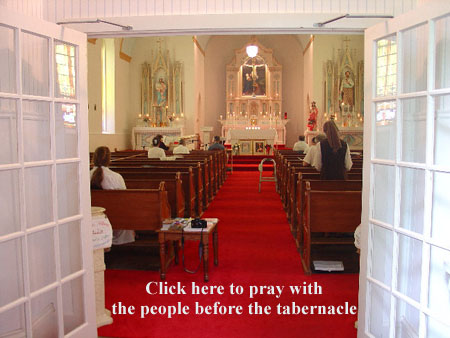 |
October 18,
2014|
October 19th Holy Spirit Novena |
The Novena Rosary
Mysteries |
Pray for Dan, Jimmy, Blue Book 14,
Fr. Joe's homily book, &
for special intentions.
Please pray for funds & grace.
October 18, 2014 - Feast of St. Luke
Today's Readings
2 Timothy 4: 10-17b
As it is, Demas has deserted me for love of this life and gone to Thessalonica, Crescens has gone to Galatia and Titus to Dalmatia: only Luke is with me. Bring Mark with you; I find him a useful helper in my work. I have sent Tychicus to Ephesus. When you come, bring the cloak I left with Carpus in Troas, and the scrolls, especially the parchment ones. Alexander the copper-smith has done me a lot of harm; the Lord will repay him as his deeds deserve. Be on your guard against him yourself, because he has been bitterly contesting everything that we say.
The first time I had to present my defence, no one came into court to support me. Every one of them deserted me — may they not be held accountable for it. But the Lord stood by me and gave me power, so that through me the message might be fully proclaimed for all the gentiles to hear; and so I was saved from the lion's mouth.
Psalm 145: 10-13, 17-18
Yod
Kaph
They shall speak of the glory of your kingship
and tell of your might,
Lamed
making known your mighty deeds to the children of Adam,
the glory and majesty of your kingship.
Mem
Your kingship is a kingship for ever,
your reign lasts from age to age.
Zade
Upright in all that he does,
Yahweh acts only in faithful love.
Qoph
He is close to all who call upon him,
all who call on him from the heart.
Luke 10: 1-9
The mission of the seventy-two disciples
After this the Lord appointed seventy-two others and sent them out ahead of him in pairs, to all the towns and places he himself would be visiting. And he said to them, ‘The harvest is rich but the labourers are few, so ask the Lord of the harvest to send labourers to do his harvesting. Start off now, but look, I am sending you out like lambs among wolves. Take no purse with you, no haversack, no sandals. Salute no one on the road. Whatever house you enter, let your first words be, "Peace to this house!" And if a man of peace lives there, your peace will go and rest on him; if not, it will come back to you. Stay in the same house, taking what food and drink they have to offer, for the labourer deserves his wages; do not move from house to house. Whenever you go into a town where they make you welcome, eat what is put before you. Cure those in it who are sick, and say, "The kingdom of God is very near to you."
Cycle C is mostly from the Gospel of St. Luke.
Feast of the Ascension of the Lord
Acts 1: 1-11
In my earlier work, Theophilus, I dealt with everything Jesus had done and taught from the beginning until the day he gave his instructions to the apostles he had chosen through the Holy Spirit, and was taken up to heaven. He had shown himself alive to them after his Passion by many demonstrations: for forty days he had continued to appear to them and tell them about the kingdom of God. While at table with them, he had told them not to leave Jerusalem, but to wait there for what the Father had promised. ‘It is’, he had said, ‘what you have heard me speak about: John baptised with water but, not many days from now, you are going to be baptised with the Holy Spirit.’
Now having met together, they asked him, ‘Lord, has the time come for you to restore the kingdom to Israel?’ He replied, ‘It is not for you to know times or dates that the Father has decided by his own authority, but you will receive the power of the Holy Spirit which will come on you, and then you will be my witnesses not only in Jerusalem but throughout Judaea and Samaria, and indeed to earth’s remotest end.’
As he said this he was lifted up while they looked on, and a cloud took him from their sight. They were still staring into the sky as he went, when suddenly two men in white were standing beside them, and they said, ‘Why are you Galileans standing here looking into the sky? This Jesus who has been taken up from you into heaven will come back in the same way as you have seen him go to heaven.’
Hebrews 9: 24-28
It is not as though Christ had entered a man–made sanctuary which was merely a model of the real one; he entered heaven itself, so that he now appears in the presence of God on our behalf. And he does not have to offer himself again and again, as the high priest goes into the sanctuary year after year with the blood that is not his own, or else he would have had to suffer over and over again since the world began. As it is, he has made his appearance once and for all, at the end of the last age, to do away with sin by sacrificing himself. Since human beings die only once, after which comes judgement, so Christ too, having offered himself only once to bear the sin of many, will manifest himself a second time, sin being no more, to those who are waiting for him, to bring them salvation.
Luke 24: 46-53
and he said to them, ‘So it is written that the Christ would suffer and on the third day rise from the dead, and that, in his name, repentance for the forgiveness of sins would be preached to all nations, beginning from Jerusalem. You are witnesses to this.
‘And now I am sending upon you what the Father has promised. Stay in the city, then, until you are clothed with the power from on high.’
Then he took them out as far as the outskirts of Bethany, and raising his hands he blessed them. Now as he blessed them, he withdrew from them and was carried up to heaven. They worshipped him and then went back to Jerusalem full of joy; and they were continually in the Temple praising God.
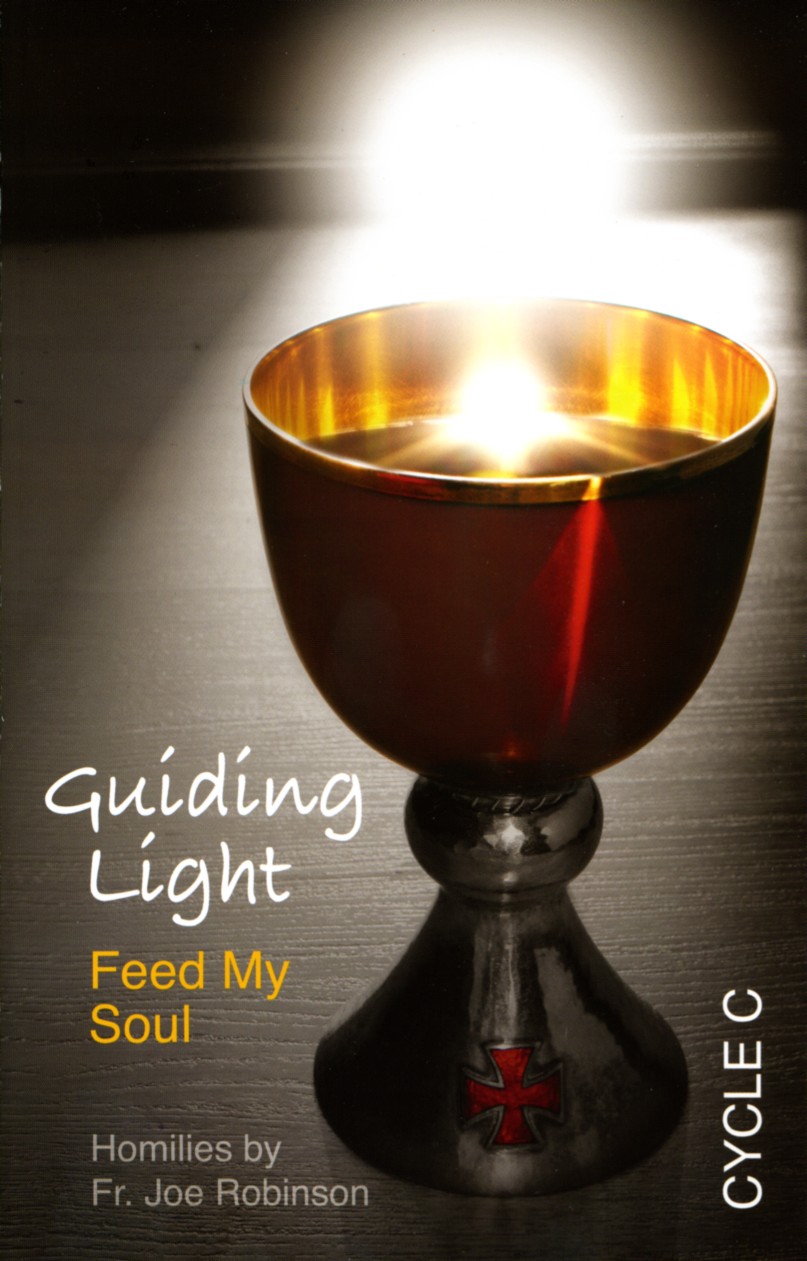

Feast of the Ascension of the Lord
May 20, 2007
INTRODUCTION: St. Luke gave us two books in the New Testament: The Acts of the Apostles and, of course, his gospel. We hear from both of them today. The gospel ends with the ascension and the Acts of the Apostles begins with the ascension. You’ll notice when you hear the first reading from the Acts, he refers to his gospel as his “first book.” It is interesting how he treats the ascension in each of these two books. In the Acts he said Jesus ascended 40 days after Easter, but in his gospel he describes how Jesus appeared to his apostles Easter Sunday night, spoke with them, ate with them and then, that night, he led them out to Bethany where he ascended into heaven. It seems as if Jesus’ physical departure from the apostles and his return to the Father was not a one-time dramatic event. It was more like a process. One way of thinking of the 40-day period is that after the resurrection Jesus appeared rather frequently to the apostles. Luke’s description of the ascension 40 days after Easter seems to mark the end of those frequent appearances. After that Jesus would be present to his followers through the Holy Spirit, the sacraments, and the Church. Luke’s second book, the Acts of the Apostles, tells us of the ways Christ continues to be with us through the Holy Spirit, the sacraments, and the Church.
HOMILY: St. Luke’s gospel begins in the temple of Jerusalem with the angel Gabriel announcing to the old priest Zechariah that he and his elderly wife, Elizabeth, would have a baby boy. The angel Gabriel said to him “Do not be afraid, Zechariah, for your prayer is heard, and your wife Elizabeth will bear you a son, and you shall call his name John. And you will have joy and gladness, and many will rejoice at his birth.” The joy at the birth of John the Baptist was only the beginning of many moments of joy recorded by St. Luke. A few months after Gabriel appeared to Zechariah, he appeared to Mary and asked her to be the mother of our Savior. She said “yes,” as we know, and then she immediately sought out her cousin Elizabeth with her good news. Mary expressed herself in the beautiful canticle, the Magnificat: “My soul proclaims the greatness of the Lord, and my spirit rejoices in God my Savior.” When Jesus was born, it was the shepherds who heard the message of joy. The angel said to them: “Do not be afraid; for behold, I bring you good news of great joy that will be for all the people.” I could bore you with a number of Luke’s other references to joy, but I’ll just fast forward to the ending of his gospel as we just heard.
St. Luke’s gospel began in the Temple of Jerusalem and that’s where it ends. It also ends with a note of joy, the same sentiment with which it began. After the ascension of Jesus, Luke tells us as Jesus “parted from them and was taken up to heaven, they did him homage and then returned to Jerusalem with great joy, and they were continually in the temple praising God.”
Wouldn’t you think the apostles would have been depressed when Jesus left them? If they were thinking only on an earthly level, of course they would have been. For it is natural to grieve when we lose someone who is important to us. But instead of grieving they “returned to Jerusalem with great joy.” I can think of at least four reasons why they were so joyful. 1) Jesus had assured them they weren’t really losing him. He would still be with them. He assured them, as we heard last Sunday,: “whoever loves me will keep my word, and my Father will love him, and we will come to him and make our dwelling with him.” 2) They were joyful because they were happy for him and they loved him enough not to begrudge his return to the Father. After all he did say: “if you truly loved me you would rejoice to have me go to the Father.” 3) They were joyful because they knew there were better things ahead. There was the Spirit which they didn’t understand yet, but which they trusted to be something wonderful. Jesus told them: “It is better for you that I go, for if I do not go, the Holy Spirit will not come to you.” And 4) they knew one day they would be with the Lord forever. He told them he was going to get a place ready for them: “and, if I go and prepare a place for you, I will come back again and take you to myself, so that where I am you also may be.”
They would have had no joy if they thought only of their separation from him. After his resurrection they began to see him in a different way. Luke even tells us they “did him homage,” a term reserved for worship of God. Their new way of seeing Jesus gave them new faith and hope and love. They could only rejoice in the faith, hope and love that filled them. Can we too rejoice in the ascension of our Lord?
Accordingly, on the first day of the seventh month, the priest Ezra brought the Law before the assembly, consisting of men, women and all those old enough to understand. In the square in front of the Water Gate, in the presence of the men and women, and of those old enough to understand, he read from the book from dawn till noon; all the people listened attentively to the Book of the Law.
The scribe Ezra stood on a wooden dais erected for the purpose;
In full view of all the people — since he stood higher than them all — Ezra opened the book; and when he opened it, all the people stood up. Then Ezra blessed Yahweh, the great God, and all the people raised their hands and answered, 'Amen! Amen!'; then they bowed down and, face to the ground, prostrated themselves before Yahweh.
Ezra read from the book of the Law of God, translating and giving the sense; so the reading was understood. Then His Excellency Nehemiah and the priest-scribe Ezra and the Levites who were instructing the people said to all the people, 'Today is sacred to Yahweh your God. Do not be mournful, do not weep.' For the people were all in tears as they listened to the words of the Law. He then said, 'You may go; eat what is rich, drink what is sweet and send a helping to the man who has nothing prepared. For today is sacred to our Lord. Do not be sad: the joy of Yahweh is your stronghold.'
Psalm 19: 8-10
The precepts of Yahweh are honest,
joy for the heart;
the commandment of Yahweh is pure,
light for the eyes.The fear of Yahweh is pure,
lasting for ever;
the judgements of Yahweh are true,
upright, every one,more desirable than gold,
even than the finest gold;
his words are sweeter than honey,
that drips from the comb.
1 Corinthians 12: 12-30
For as with the human body which is a unity although it has many parts—all the parts of the body, though many, still making up one single body—so it is with Christ. We were baptised into one body in a single Spirit, Jews as well as Greeks, slaves as well as free men, and we were all given the same Spirit to drink. And indeed the body consists not of one member but of many. If the foot were to say, ‘I am not a hand and so I do not belong to the body,’ it does not belong to the body any the less for that. Or if the ear were to say, ‘I am not an eye, and so I do not belong to the body,’ that would not stop its belonging to the body. If the whole body were just an eye, how would there be any hearing? If the whole body were hearing, how would there be any smelling?
As it is, God has put all the separate parts into the body as he chose. If they were all the same part, how could it be a body? As it is, the parts are many but the body is one. The eye cannot say to the hand, ‘I have no need of you,’ and nor can the head say to the feet, ‘I have no need of you.’
What is more, it is precisely the parts of the body that seem to be the weakest which are the indispensable ones. It is the parts of the body which we consider least dignified that we surround with the greatest dignity; and our less presentable parts are given greater presentability which our presentable parts do not need. God has composed the body so that greater dignity is given to the parts which were without it, and so that there may not be disagreements inside the body but each part may be equally concerned for all the others. If one part is hurt, all the parts share its pain. And if one part is honoured, all the parts share its joy.
Now Christ’s body is yourselves, each of you with a part to play in the whole. And those whom God has appointed in the Church are, first apostles, secondly prophets, thirdly teachers; after them, miraculous powers, then gifts of healing, helpful acts, guidance, various kinds of tongues. Are all of them apostles? Or all prophets? Or all teachers? Or all miracle–workers? Do all have the gifts of healing? Do all of them speak in tongues and all interpret them?
Luke 1: 1-4; 4: 14-21
Seeing that many others have undertaken to draw up accounts of the events that have reached their fulfilment among us, as these were handed down to us by those who from the outset were eyewitnesses and ministers of the word, I in my turn, after carefully going over the whole story from the beginning, have decided to write an ordered account for you, Theophilus, so that your Excellency may learn how well founded the teaching is that you have received.
Jesus, with the power of the Spirit in him, returned to Galilee; and his reputation spread throughout the countryside. He taught in their synagogues and everyone glorified him. He came to Nazara, where he had been brought up, and went into the synagogue on the Sabbath day as he usually did. He stood up to read, and they handed him the scroll of the prophet Isaiah. Unrolling the scroll he found the place where it is written: The spirit of the Lord is on me, for he has anointed me to bring the good news to the afflicted. He has sent me to proclaim liberty to captives, sight to the blind, to let the oppressed go free, to proclaim a year of favour from the Lord. He then rolled up the scroll, gave it back to the assistant and sat down. And all eyes in the synagogue were fixed on him. Then he began to speak to them, 'This text is being fulfilled today even while you are listening.'
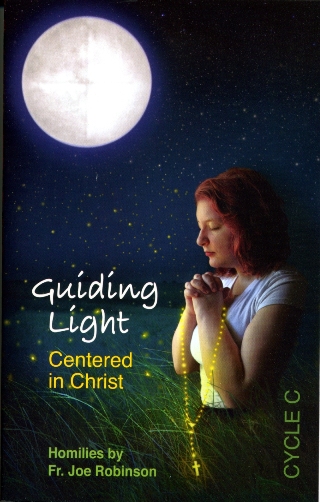

Third Sunday in Ordinary Time - C Cycle
January 24, 2010
INTRODUCTION - After the Persians released the Jews from their Babylonian exile and even assisted them to return to their homeland, it did not happen all at once. After fifty years in Babylon, most of the Jews were quite comfortable there and were not in a hurry to return to their devastated homeland. Even a hundred years after being allowed to go back to Israel, they continued to struggle in their efforts to rebuild their cities and their civilization. Today's first reading brings us back to that period of return and restoration, about 100 years after the Jews started returning home. The Persians were still the reigning power in the Middle East -including Israel. Today's first reading is from the book of Nehemiah. Nehemiah had held an important position as a servant to the Persian king. Knowing the difficulties the Jews were confronted with, the king allowed Nehemiah to return to Israel to help his people rebuild and appointed Nehemiah to be governor in Israel. In an effort to rebuild the nation, Nehemiah started with what was most important and that was their faith in God. In today's first reading Nehemiah called for a general assembly of the people and he delegated the priest-scribe, Ezra, to read God's word to them. Remember, books were very rare in those days and were very expensive, since there were no printing presses. Every letter of every word had to be individually printed by a scribe. Very few people knew how to either read or write. So, for an ordinary person to know God's word, someone had to read it or preach it to them. Ezra read God's word to the people and interpreted it for them. The reading was most probably from the first five books of the bible. Notice how the people actively responded to God's word.
HOMILY - The people who heard God's word in our first reading and in our gospel took what they heard seriously. If they hadn't taken it seriously, their response would have been indifference. They were certainly not indifferent to the Word. Unfortunately, the people of Nazareth eventually responded to Jesus with hostility, which was not the response Jesus was looking for. One of the questions I have been hearing frequently from people who want to take Jesus' words seriously is if the Bible is God's word, how did it come to be. Did it come floating down out of heaven? Well, no. I want to explain today the gospels and how they came to be. I'm not going to try to explain the development of the Hebrew Bible or what we call the Old Testament. That would take quite a long time. I am probably biting off more than I should in even trying to explain the development of the gospels, but we get some special help today from St. Luke. That is why I am bringing up this topic for my homily. I don't think it's something I've ever preached on before. Luke tells us at the very beginning of his gospel why he wrote what he did and how he went about it. He gives us a similar introduction at the beginning of his second work, the Acts of the Apostles.
Most of you probably know that
the gospels were not written until many years after Jesus
died and rose. So how did people learn about Jesus? Many
knew him during his lifetime. He was a public figure,
teaching and healing for about three years. Immediately
after the Spirit came upon the Apostles at Pentecost, they
began to tell the story of Jesus. In spite of persecution,
and actually because many believers fled the persecutions,
the story of Jesus quickly spread all through the Middle
East and the Mediterranean area. The Acts of the Apostles
and the Letters of Paul give us some idea of how this
process took place so quickly. As the Apostles traveled far
and wide, as faith began to grow, and as those who were
eyewitnesses to Jesus began to die out or be put to death,
the need for authoritative written accounts of Jesus' life
and teachings increased. Because of the striking
similarities between the first three gospels, scholars
reasonably assume there was a collection of Jesus' sayings
which they call Q, which stands for the word Quelle (the
German word for source). Whatever document contained this
collection of Jesus' sayings no longer exists, but it was
available in the early Church. The earliest document we have
about Jesus is not a gospel. It is Paul's first letter to
the Thessalonians and was written about 51 A.D. The earliest
gospel, St. Mark, came on the scene 20 years later - around
the year 70. Matthew and Luke were written about the year 85
A.D. It is easy to picture Matthew and Luke each having the
gospel of Mark in front of them as they composed their own
gospels for they borrow heavily from Mark. But they each had
other sources as well to help them put their gospels
together. As we just heard Luke tell us at the beginning of
his gospel, others "have undertaken to compile a narrative
of the events that have been fulfilled among us, just as
those who were eyewitnesses from the beginning and ministers
of the word have handed them down to us." Luke evidentially
feels he has some things to say that the others didn't say -
and indeed he did have a lot to tell us that the others
didn't. Luke goes on to tell us he very carefully
investigated everything and wrote it down so that Theophilus
might be strengthened in faith regarding the teachings he
was already familiar with -through other writings and
preaching. The name Theophilus means "friend of God" so he
could have been a real person or the name could symbolize
all of us. Just to deviate from Luke for a moment, John
tells us he wrote his gospel for the same reason, so that we
may believe in Jesus as Messiah and Son of God and through
this belief we may have life in his name. (Jn 20,31)
John assures us that his testimony is that of an eyewitness.
(Jn 19,35) By the way, John's gospel is believed to
have been written roughly around the same period as Matthew
and Luke (or maybe later). Other gospels came to be written
too. I have a list of 16 other gospels, most of which came
out of heretical groups and were from a later time. Most are
in Greek. I have a copy of some that were published in
English. I confess I didn't read much from them. I found
them boring and at times somewhat bizarre. They really do
not reflect the belief of the early Church about Christ and
that's why they pretty much were ignored or forgotten. What
we have in the four gospels reflects the belief of the early
Christians as derived from the apostles and from
eyewitnesses. It is the testimony of men and women who were
willing to give up their life rather than give up, not just
what they believed, but what they had seen. As John says in
his first letter: the Word of life was made visible; "we
have seen it and testify to it and proclaim to you the
eternal life that was with the Father and was made visible
to us..." (I John 1,2) Matthew, Mark, Luke and John
all give us the same message of faith about Jesus, but they
are four different authors so they describe Jesus in their
own unique way and with their own unique emphasis. We can
learn from each of them, and we do throughout our three-year
liturgical cycle. When we read what their words, God is
speaking to us through them. May the seriousness of their
message lead us to respond with faith and love to the Word
we hear. Amen.
Blue Book Blow Out for Christmas
Give the gift that keeps giving this Christmas
6 different Blue Books for $30.00 including postage
|
|
|
|
|
|
|
|
|
|
|
|
|
|
|
|
|
|
Books available in limited supply for this sale.
Blue Book Blow Out for Christmas
Blue Book 1 – $6.00 each plus postage
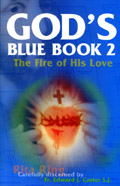
Blue Book 2 – $5.00 each plus postage
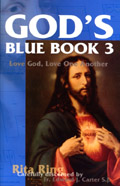
Blue Book 3 – $4.00 each plus postage
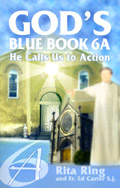
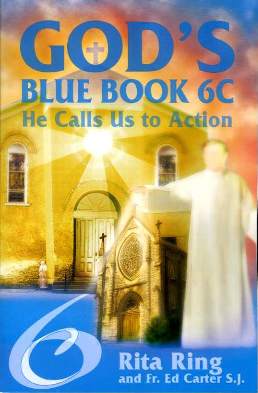
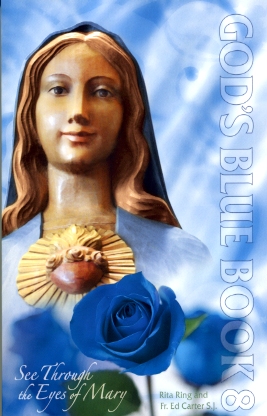
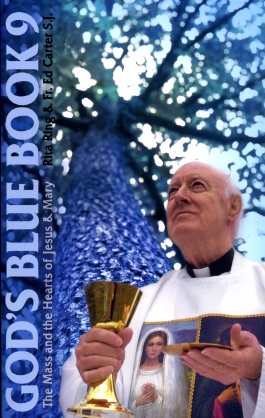
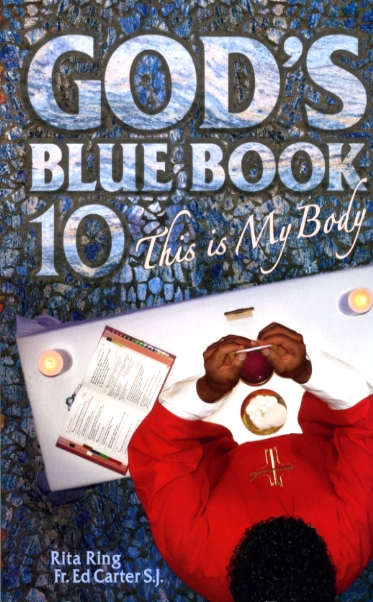
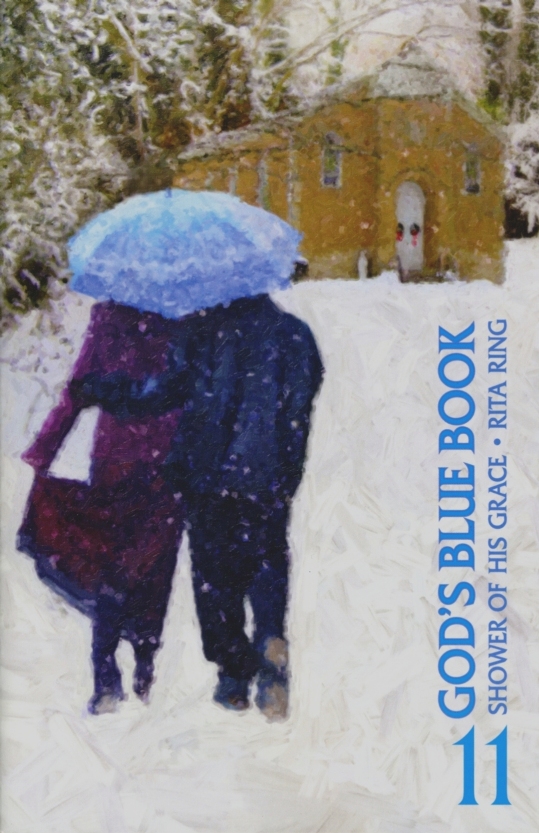
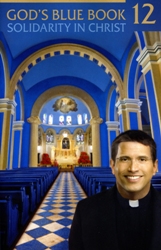
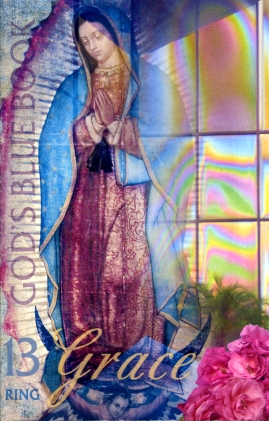
Blue Books 13, 12, 11, 10, 9, 8, 7,
6A, B, C –
$3.00 each plus postage
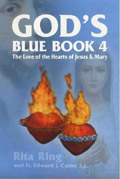
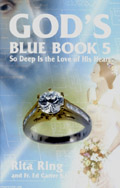
Blue Books 4 & 5 –$2.00 each plus postage
The more you use the Blue Books and
become one with Jesus – more
intimate with Jesus –
the more your lives are a blessing and
everything you do in life can help
to bring down great grace for the world
because of your being so
one with Jesus.
Guiding Light Homily Book Series
Fr. Joe’s Books
|
|
|
|
|
4 for $20 plus postage of $5.95
These books can be given to:
1) All Priests
2) Good for Music Ministers
3) Good for DRE's
4) Good for Deacons
5) Good for Principals of Schools
6) Good for Teachers
7) Good for Mom and Dads
This statue was handmade and
hand-painted
and has a little piece of the glass
from the image face of Mary –
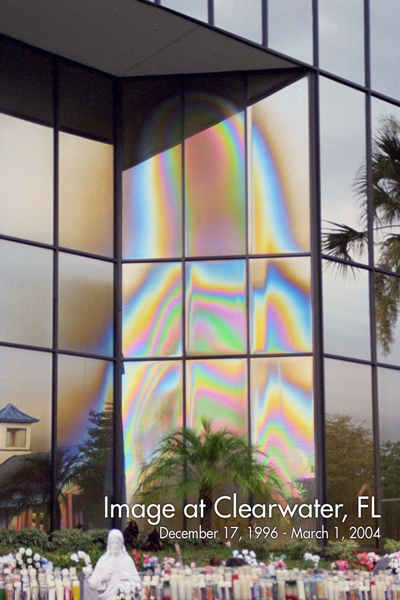
|
PV-Fatima w/glass - 27  |
PV-Fatima w/glass - 18  |
PV-Fatima w/glass - 15  |
OL-Fatima w/glass - 18 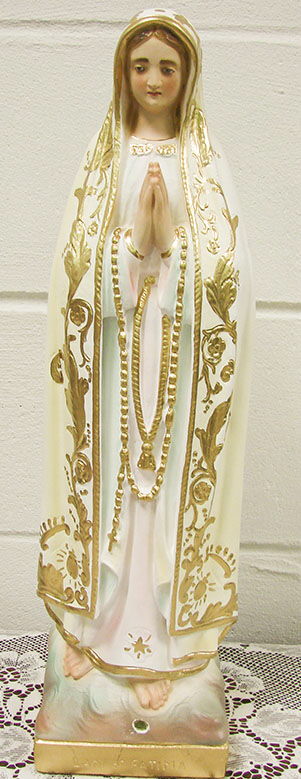 |
PV-Fatima w/glass - 12 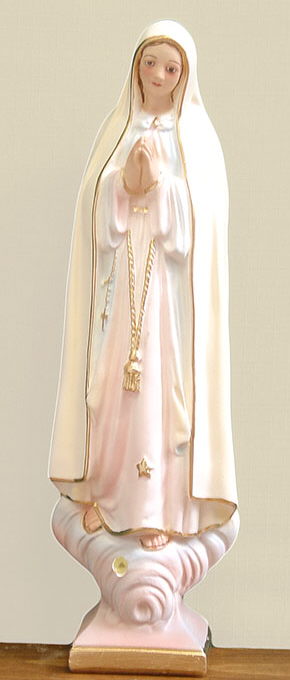 |
OL-Fatima w/glass - 11 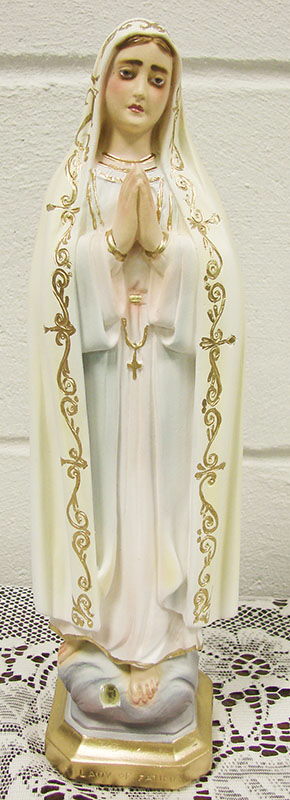 |
|
OL-Guadalupe
w/glass - 28 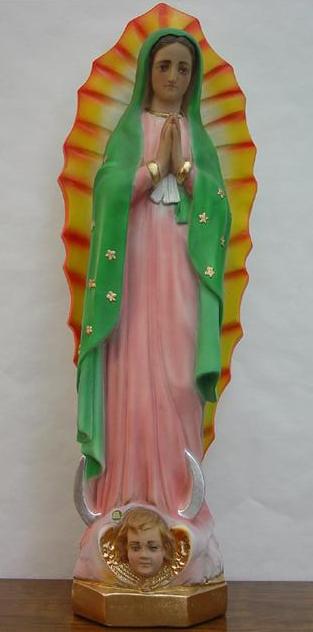 |
OL-Grace
|
OL-Mt.
Carmel w/glass - 24 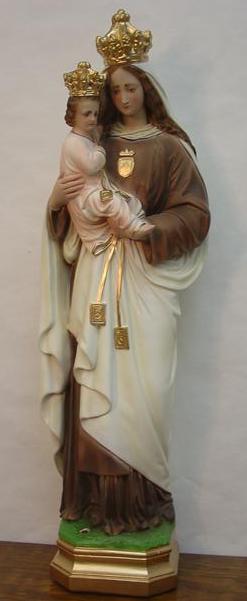 |
OL-Lourdes
|
IH-Mary
|
IH-Ivory
|
|
SH-Jesus
w/glass - 24 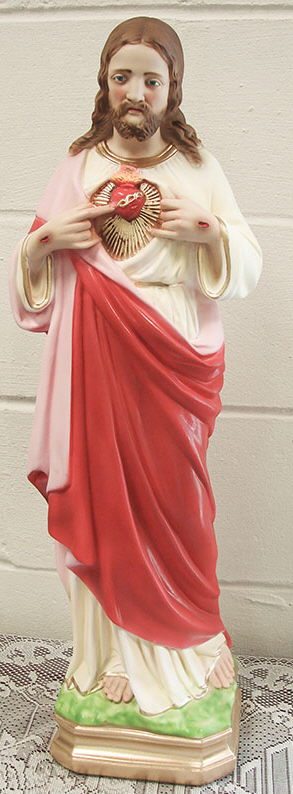 |
SH-Blessing
w/glass - 24 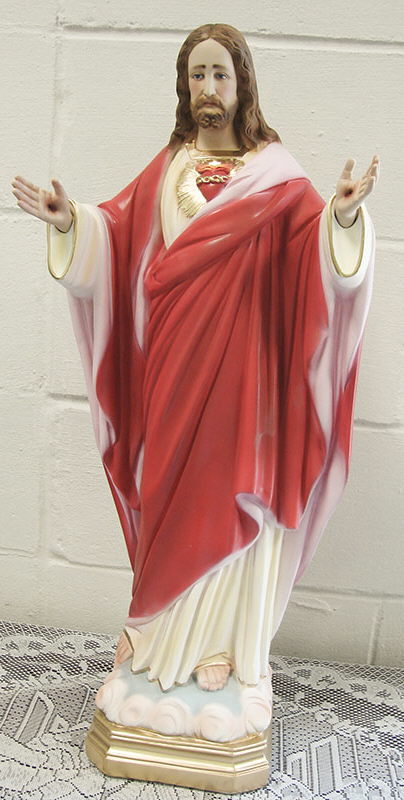 |
Sorrow
M
w/glass - 24 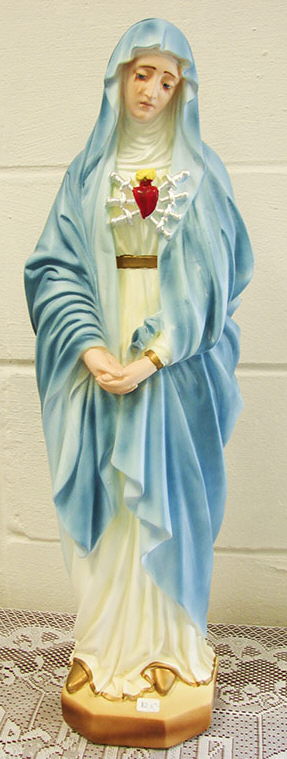 |
Inf.-Prague
w/glass - 24 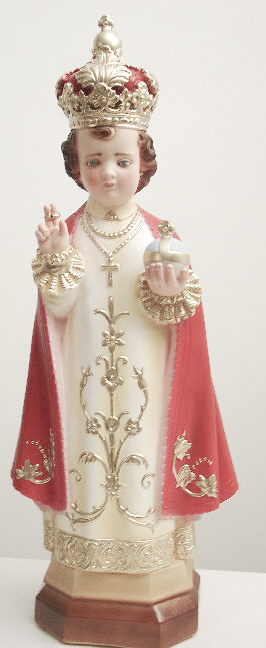 |
OL-Lourdes
|
OL-Mt.
Carmel w/glass - 18 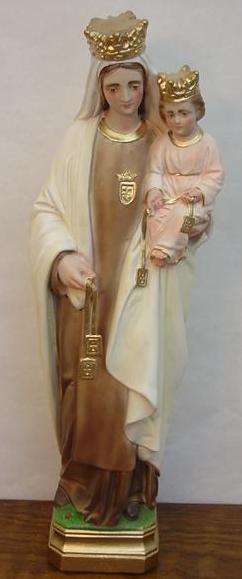 |
|
I
Heart
|
I
Heart
-
Ivory |
OL-Grace
|
SH-Jesus
w/glass - 18 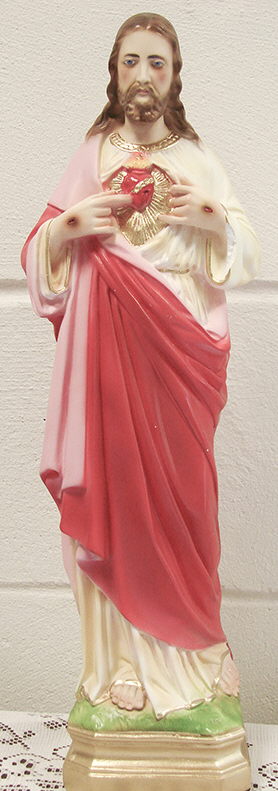 |
OL-Guadalupe
w/glass - 12 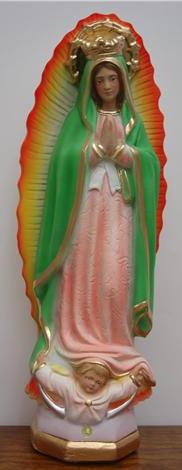 |
We
cannot
get
these
statues
any
more
–
the
men
making
them
were
from
Portugal
and
no
longer
do
so
We
will
have
a
limited
number
until
they
are
gone
–
These statues are a treasure, a work of art
At
the
end
of
this
message
are
healings
from
statues
and
the
Jesus
and
Mary
waters
–


Given March 21, 2014
R. Pray for These Things
1) Pray for the Pope & hierarchy to help us start prayer chapters.
2) Pray for Dan, Sally Jo, Richard, Carol, Margaret, Sue,
Jack, Jean, Amanda, Special intentions
3) Pray for the priests, the Church and the world!
4) Pray for the spread of prayer chapters,
also for the spread of priests doing prayer chapters.
5) Pray for the spread of Blue Books.
6) People going to Florida and China.
7) Vocations to all 7 categories.
8) Pray for spread of Consecration and Rosary.
9) Pray for pope helping us.
10) Pray for Jeff - sales & health. Pray for Nick.
11) Blue Book 14 cover; Blue Book 13 – all involved.
For our Publisher and all involved
12) All intentions on my list, Jerry's list.
13) Priests getting Fr. Joe's book.
14) Pray for Fr. Joe's new book, cover & funds for printing & postage.
15) Donors and members and their families.
16) Healing of the Family tree.
17) Dan & Melanie, Catherine & mom, Gary, Mary Jo,
Jim & statues, Fr. Ken, Monsignor, Kerry, Tom & wife.
18) All who asked us to pray for them.
19) All we promised to pray for.
20) Rita, John, Doris, Sheila, Jerry, Regina, Sanja,
Betty, Sophie, Lisa, Eileen, Fr. Mike, Louie,
2 Dons, Mary Ellen, Fr. Joe, all priests helping us,
Ed, Jimmy, Steve, a special couple, Rosie & all involved.
21) 2 babies and moms.
22) Funds and insurance.
23) Jerry's garage.
24) In thanksgiving for gifts, graces, & blessings received.
25) Spread the Blood of Jesus on all of us here.
26) Consecrate all hearts.
27) Cast the devil out of all of us here and all in Movement.
We need money for
Fr. Joe's new homily book
(we sent almost 40,000 to priests,
cardinals, bishops)
Can you please help us?
888-211-3041
The Wedding Rosary
Crystal Image Rosary
$40 plus shipping
Special First Communion Rosary with Image Center
in a gift box
white blue red
and an 8 x 10 picture of Our Lady of Clearwater
and a 4 x 6 picture of Our Lady of Clearwater$10 plus postage
Original Image Rosary
8mm glass beads
in a matching gift box$40 plus shipping
Special Sale Statues with image glass
15" Pilgrim Virgin Fatima – $85
12" Our Lady of Fatima – $75
plus shipping
while supplies lastCall Regina 1–727–776–2763
Call Rosie 888–211–3041
In Spanish with the Imprimatur
Also we are ready to print
5000 copies of the
Parents and Children's Rosary Book
in SPANISH.
Can you help with a donation?
Give the gift that counts.
Give to your priests Fr. Carter's Books plus postage.
Tell My People $5.00
Response to God's Love $8.00
Response in Christ $8.00
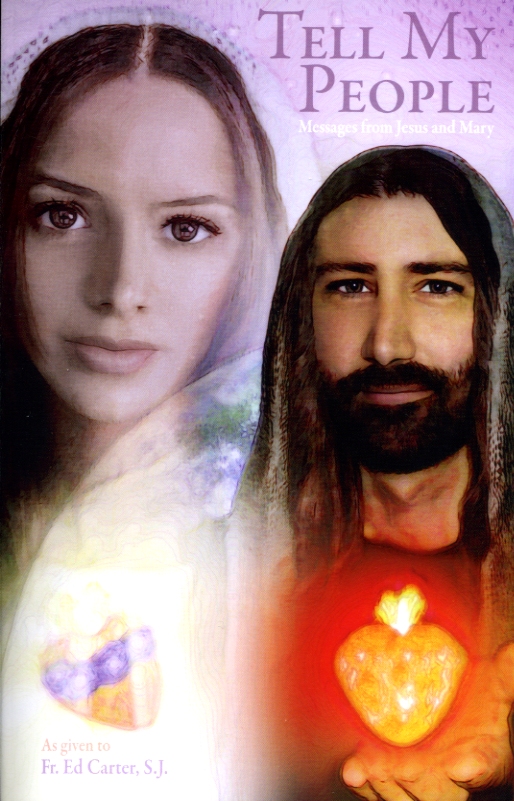
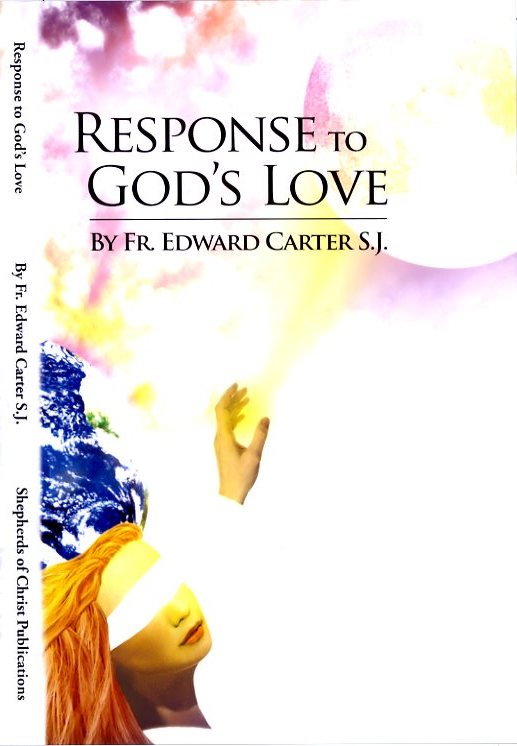
God's Blue Books 4, 5, 6A, 6B, 6C, 7, 8, 9, 10, 11, 12, 13
$4.00 each plus postage
Blue Book 4
Blue Book 5
Blue Book 6A
Blue Book 6B
Blue Book 6C
Blue Book 7
Blue Book 8
Blue Book 9
Blue Book 10
Blue Book 11

Blue Book 12 & 13
Old Mass Books with the Imprimatur
$2.00 plus postage
New Mass Book with Imprimatur
$8.00 plus postage
New Parents & Children's Book with the Imprimatur
$8.00 plus postage
Fr. Joe's Cycle A – Steadfast to the Sun – Starts in Advent
$5.00 plus postage
Give the gift that keeps on giving!
Give to your priest.
Fr. Carter's Priestly Newsletters Book II
$6.00 plus postage
Special sale statue with glass
27" Statue of Our Lady of Fatima
$175 plus postage
Get a canvas print of Mary's image
with a sliver of glass and a little
bottle of Jesus and Mary water.
The glass will be fixed behind the
back of the picture.
$200.00 plus postage
Dan called and gave the report to me, when I hung up I saw this rainbow and took a picture for him.
Shepherds of
Christ Ministries P.O. Box 627 China, Indiana 47250
Telephone: (toll free) 1-888-211-3041 or (812) 273-8405
FAX: (812) 273-3182